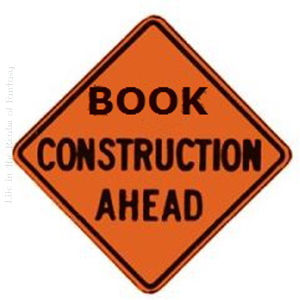 In literature, the word agency is used to define an active vs. a reactive character. Active characters have agency, where passive characters are pushed into predictable actions and boring outcomes.
In literature, the word agency is used to define an active vs. a reactive character. Active characters have agency, where passive characters are pushed into predictable actions and boring outcomes.
Chuck Wendig, in his wonderful post on this subject, nails down the heart of this issue: “Character agency is, to me, a demonstration of the character’s ability to make decisions and affect the story. This character has motivations all her own. She is active more than she is reactive. She pushes on the plot more than the plot pushes on her. Even better, the plot exists as a direct result of the character’s actions.”
In other words, the character must drive the plot. Until you nail down just who your characters are and what they want, your plot will go nowhere. In this regard, you must give your characters permission to NOT BE PASSIVE.
I am an ‘outliner,’ but I am also a ‘pantser.’ By this I mean that I have an idea, a “What if…” moment, and that evolves into an outline, a guide that is the jumping off point. Once I begin writing, the story goes through a radical evolution, driven by the personalities who inhabit that world.
Because my work evolves drastically over the course of four drafts, the moment I set pen to paper, I start building a stylesheet, also known in the industry as a ‘bible,’ a list of names, places, and relationships, updating it as I go. This is critical so that in the editing process any subtle shifts of spellings or names (and a multitude of other horrible things) can be rectified and made consistent.
We begin with a static idea for the story. We think we know who goes where, what our characters will do, and we think we know how it will end.
You must give your plot structure. In other words, create a good story arc to begin with, but allow your characters to surprise you, taking the story indirections you didn’t originally envision.
We know that the way to avoid obviousness in a plot is to introduce a big threat. How our characters react to that threat should be unpredictable because they have agency.
When we give our characters agency, this threat removes the option of going about life as normal but leaves characters with several consequential choices, the final one of which will be made in a stressful situation.
I used the word consequential relating to the choices your characters must make. I chose that word intentionally. If there are no consequences for bad decisions a character might make, what is the story about?
Why would a random trip to a convenience store interest a reader if something out of the ordinary does not occur? After all—we go out for bread every day, and it’s not too exciting. Frankly, I’m not interested in reading about Bubba buying a loaf of bread. But make him the witness to a robbery and things begin to get interesting. Better yet, give him options:
- Bubba can hide and wait for the intruders to leave.
- Bubba can decide to be a hero.
- What other options does Bubba have? What does he see when he looks around the store?
Whatever Bubba chooses to do, there will be consequences. If things go awry, he could become a hostage. If he goes unnoticed but tells the police what he knows, he and his family could be in danger.
Once he is in the middle of these consequences, Bubba will have more crisis points to face, and a lack of bread for toast will only be one of them. He will have many decisions to make, and each choice will drive the plot.
The obstacles your characters face and the choices they make in those situations are the story. Giving your characters an active role and allowing them agency is what drives a great, absorbing story.
Quotes and Attributions:
Quote from JUST WHAT THE HUMPING HECK IS “CHARACTER AGENCY,” ANYWAY? ©2014 Chuck Wendig, posted June 03, 2014 http://terribleminds.com/ramble/2014/06/03/just-what-the-humping-heck-is-character-agency-anyway/ accessed July 25, 2017.
#amwriting: ensuring consistency: the stylesheet, © 2016 Connie J. Jasperson, posted August 3, 2016 https://conniejjasperson.com/2016/08/03/amwriting-ensuring-consistency-the-stylesheet/ accessed July 25, 2017.








“Build a stylesheet, also known in the industry as a ‘bible,’ a list of names, places, and relationships, updating it as you go.” I think this is where I often bog down — I can’t remember and then I waste time re-reading trying to find whatever “it” is and that’s a horrid rabbit hole because then I start editing . . . argh! Do you have a handy dandy stylesheet template, Connie, that you’d recommend?
LikeLiked by 1 person
I do, Shannon — I use an excel workbook. I will email the blank template to you. Friends don’t let friends write without “style”, lol!
LikeLike
Pingback: #amwriting: give your characters agency – Val, Tell Me A Story…
Reblogged this on Val, Tell Me A Story… and commented:
This is a great Blog on defining “agency” and how it shows in your plot and story!
LikeLike
Thank you– I have had excellent teachers!
LikeLiked by 1 person
Sometimes a character just needs a good travel agency.
LikeLike
When I put this together, I wondered what you would say, Perfesser 😀 ♥
LikeLike